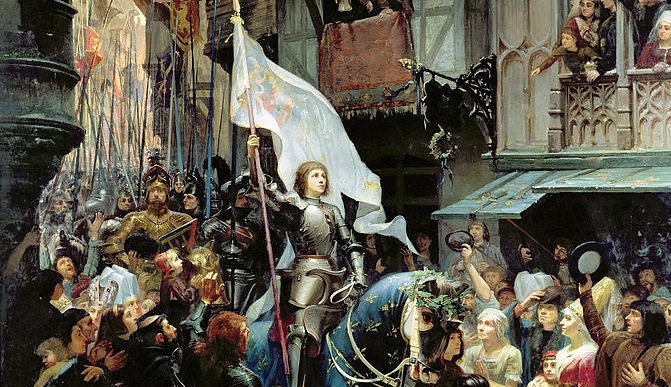03.27.18
A smattering of rain above a hall
That holds her earthy fragments, broken, spent,
A woman who, in life, out-did them all,
And e’en in death defies the elements.
O, what would she make now of her dear France,
Beset by enemies who walk among us,
Tracing our very steps, this spiteful dance
Of hateful conflict, pillared by mistrust.
Yet none of us alive know of her woes,
That fought for justice, ‘fore it was a thought,
When no man did the same, a woman rose,
Strapped armor on, and towards a new world fought.
Lie still, great Joan, and leave the rest to we,
Who’ll sculpt a world you built, but cannot see.
Edward Hoke studies Acting and Classics at Northwestern University. For weekly poetry-based posts and photos, follow on instagram at @blandmagyar















Wow!
This is beautiful!
Congratulations Edward!
Beautiful, Edward.
Wonderful!
This is a great poem. I particularly favor the ending.
“to we” should be “to us”.
It might be an easy fix. Perhaps this:
Lie still great Joan and rest, for it is we
Edward, you wrote an exceptional poem, which I truly do like a lot. I’m not trying re-write it; I was just trying to be helpful.
Yes, “to we” sticks out like a sore thumb. Even some circumlocution such as “to us that be” would be better than this.
Effective contrast between then and now, with a timely topical reference.
Love your beautiful poem to my Patron Saint Joan, very inspirational!
Lie still, great Joan, and leave the rest to we,
Who’ll sculpt a world you built, but cannot see.
I say we not us on purpose for we will lead the way
Your beating heart eternal still inspires us today!
A memorable poem which seamlessly links past to present.
If you read the comments further, you will see that the links are not all that seamless.
Thanks C.B., When reading this sonnet I also immediately noticed the ‘to we’ instance. I am in agreement with comments that a fix for this would help. However, I still contend that the linkage between past and present is effectively made.